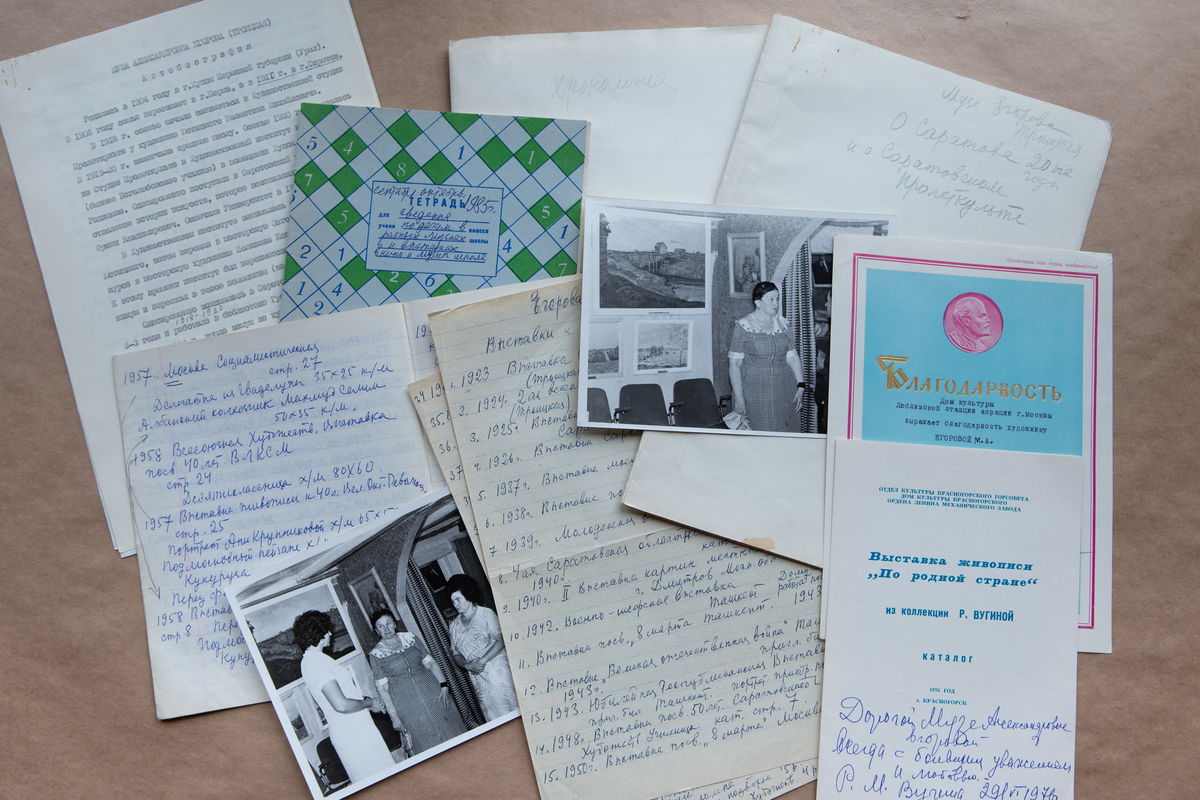Muza Yegorova (Yegorova-Troitskaya) archive
About the archive
In 2019, Garage Museum of Contemporary Art acquired the archive of Muza Yegorova (Yegorova‑Troitskaya), a representative of the 1920s avant‑garde movement in Saratov. The archive contains materials related to Yegorova’s life and work: autobiographical and chronological notes, lists of works, catalogues, booklets, invitations, and press articles about exhibitions she participated in. It also includes documentary photographs, and correspondence addressed to her, as well as private documents. Offering insight into the details of Yegorova’s artistic career, the materials in the archive also help reconstruct the history of cultural events in the twentieth century.
About Muza Yegorova
Muza Yegorova (Yegorova‑Troitskaya) (1904–1990) was a Russian and Soviet painter and graphic artist who was part of the 1920s avant‑garde movement in Saratov. She was a student of the avant‑garde artist and Head of the Proletkult Painting and Drawing Studio Valentin Yustitsky, who played a major role in artistic developments in Saratov after the revolution. As an art history student at Saratov Art College, Yegorova was a member of the student theater group Poekhma and a futuristic noise orchestra (1920–1925). She worked at the Nizhnevolzhsky Krai Museum and taught drawing at a local workers’ school (1925–1927).
In 1933, Muza Yegorova moved to Moscow with her husband, the set and stage designer and Moscow Union of Artists member Vladimir Yegorov. During World War II, she returned to Saratov (1941–1942), where she made puppets for a puppet theater, and in 1942–1943 she lived in Tashkent and Samarkand. After the war, she returned to Moscow, where she focused on landscape, still life, and portrait painting and played an active role in the Soviet art scene. Her works are in the collection of the State Tretyakov Gallery and the Radishchev Art Museum in Saratov.
- Collections
- Persons
- Keywords
- Type of entry
- Place
- Time span
